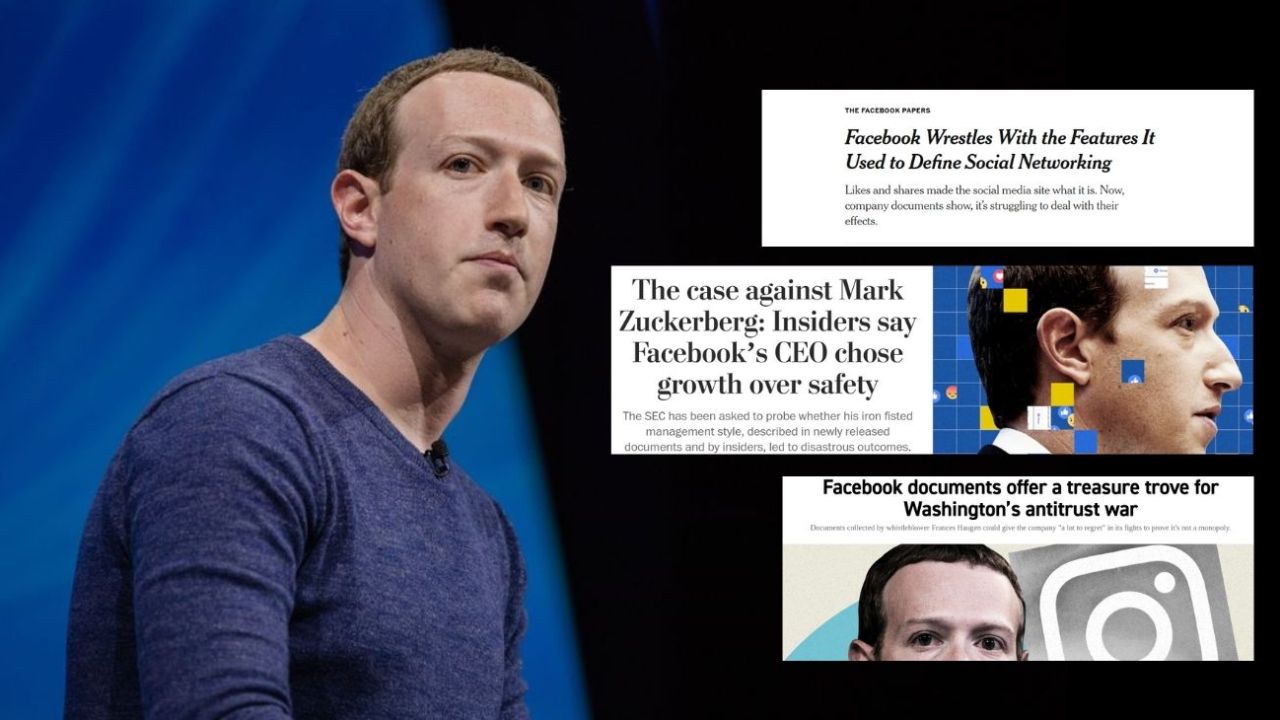A new odyssey Zuckerberg comes to the world with new businesses, virtual worlds and in search of a reputation that has never been like before. Key points to understand where the billionaire’s new project is headed.
Yesterday saw a historic and revolutionary event in the business world. Facebook announced at its annual conference on augmented reality and virtual reality technology that it is changing its name to ‘Meta’, which in Greek means “beyond.”
This is where the CEO of the company, Mark Zuckerberg, wants to go, who after several accusations and the distrust of users, decided, with his team, to make a drastic change in strategy for the company. According to Zuckerberg, the decision to change Facebook’s name was made to “reflect who we are and what we hope to build,” referring to the company’s plans to focus on the “metaverse.”
The name change, which the American outlet The Verge had reported earlier this month, is also accompanied by a new logo. It is a blue logo shaped like an infinity symbol.
Zuckerberg also elaborated on the ” metaverse, ” a concept of a digital world where virtual reality mixes with physical reality, at the company’s annual conference. “Over time, I hope we will be seen as a meta-reverse company, and I want to anchor our work and identity in what we are building.”
Games are likely the first feature to draw users to the metaverse, but Zuckerberg is also looking to hook users with training sessions, as well as features for work and education in the metaverse.
Zuckerberg added that Facebook is leaning toward giving users the option of using accounts separate from their social media accounts. Facebook has on the market smart sunglasses equipped with integrated cameras, manufactured jointly with Ray-Ban, and already offers virtual reality headsets.
You raise the shares
Shares of Facebook (NASDAQ: FB) are up 3.3% after formally announcing the name change from Facebook to Meta. This was announced by the CEO of the technology giant, Mark Zuckerberg from a Facebook Connect virtual and augmented reality conference.
“The metaverse is the next frontier, like social networks when we started,” said the manager when making the announcement. “We are seen as a social media company, but in our DNA we are a company that builds technology to connect people,” he added.
The change came with everything, since December 1, the technology company stock ticker will no longer be FB but MVRS. And the company is destined to spend about 10 billion dollars next year to develop more technology and strengthen the construction of the “Metaverse”.
This is Zuckerberg’s new project, with which he seeks to elevate the company from a social network to a new way of working and entertainment with virtual interconnection.
“Our hope is that, in the next decade, the metaverse will reach one billion people, with hundreds of billions of dollars in digital commerce and offer jobs for millions of creators and developers,” said the executive today.
The technology giant’s revenue in the third quarter reached $ 29.01 billion, 33% compared to the same period last year. Its goal for the last quarter of the year placed it between US $ 31.5 billion and US $ 34 billion.
Odyssey summary
In a few weeks, Facebook experienced an unprecedented revolution to the point of changing its own name and focusing on what will be its new business: the metaverse. Step by step, the key points of Mark’s odyssey.
KEY FACTS
Facebook’s new name, Meta, is Greek for “beyond,” Facebook CEO Mark Zuckerberg said at the event. He said the decision to change Facebook’s name was made to “reflect who we are and what we hope to build,” referring to the company’s plans to focus on the “metaverse.” A blue logo shaped like an infinity symbol accompanied the new name. Facebook Inc. also owns Instagram and WhatsApp, among other mobile applications.
CRUCIAL APPOINTMENT
“Right now, our brand is so closely tied to a product that it can’t possibly represent everything we’re doing today, let alone in the future,” said Zuckerberg. “Over time, I hope that we will be seen as a meta-reverse company, and I want to anchor our work and identity in what we are building.”
MAIN CRITICAL
“Facebook executives have not proven to be trustworthy with their products in the real world, so it is unclear why we should trust them in a virtual world,” said Kirsten Martin, professor of technology ethics at the College of Business at Mendoza of the University of Notre Dame said in a statement.

